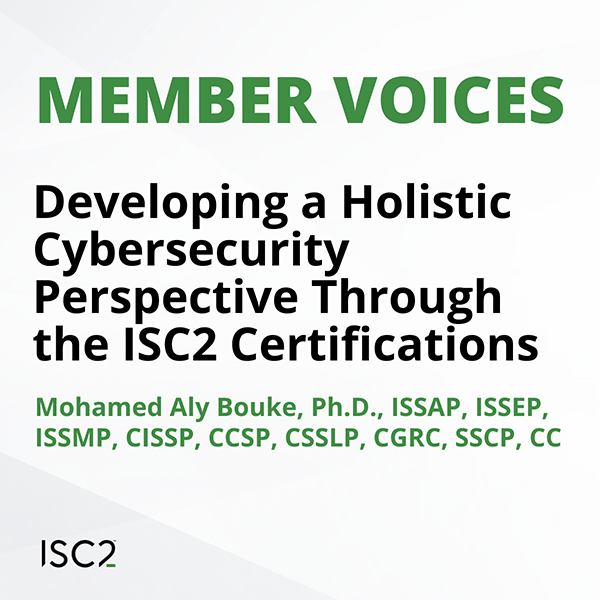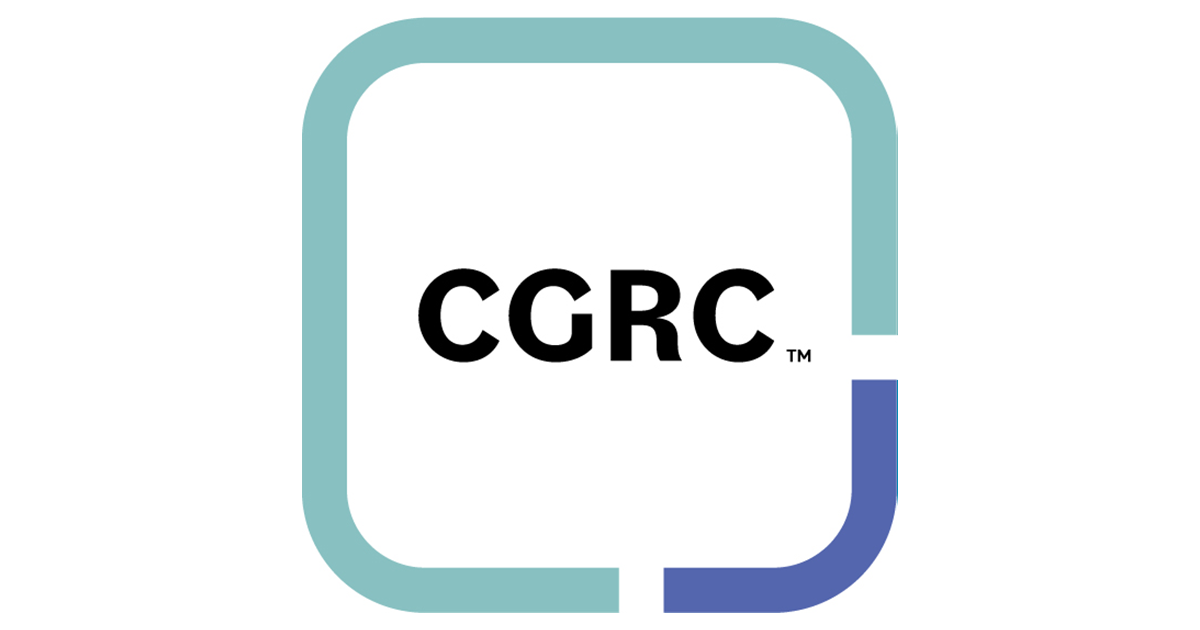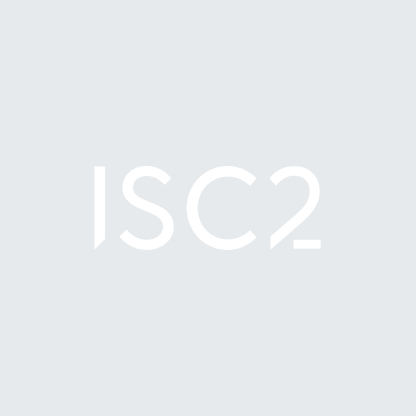
Cloud adoption and usage is building at an unprecedented pace. Worldwide end-user spending on public cloud services is forecast to grow 23.1% in 2021 to total $332.3 billion, up from $270 billion in 2020, according to the latest forecast from research and advisory company Gartner. Spending on cloud management and security services, specifically, is expected to grow 12% in the next year, from approximately $16 billion in 2021 to about $18 billion in 2022.
Demand for cybersecurity experts specializing in cloud security is skyrocketing worldwide. But with so many cloud certifications out there, how do you know which one is right for you?
To help narrow the field, let’s look at how five leading vendor-neutral cloud credentials compare: Certified Cloud Security Professional (CCSP) vs. four EXIN Cloud Certifications: CCC Professional Cloud Administrator, CCC Professional Cloud Service Manager, CCC Professional Cloud Developer and CCC Professional Cloud Solutions Architect.
Where did the certifications originate?
CCSP was co-developed and launched in 2015 by two nonprofit organizations focused on cloud and information security — ISC2 and the Cloud Security Alliance (CSA). The stand-alone neutral credential was designed to complement and build upon existing certifications and education programs. Since the co-development and launch of CCSP, ISC2 continues to maintain and update the exam and training materials to ensure ISO accreditation.
EXIN Cloud Certifications were originally developed by the nonprofit organization Cloud Credential Council (CCC). In 2016, EXIN and CCC signed a partnership that made EXIN the official exam institute for the CCC certification program.
What is each cert’s emphasis on cloud security?
CCSP specifically focuses on cloud security, testing candidates’ skills and knowledge across six cloud security domains. It validates your ability to design, manage and secure data, applications, and infrastructure in the cloud, while also following the best practices established by ISC2.
Security is a limited focus in three of the broader-focused EXIN Cloud Certifications. CCC Professional Cloud Administrator includes cloud security fundamentals as one of eight topics covered; CCC Professional Cloud Developer includes it as one of 13 modules. CCC Professional Cloud Solutions Architect covers cloud security issues as a subset of one of 11 modules. CCC Professional Cloud Service Manager does not explicitly include cloud security as a topic covered in any of its nine modules.
Domains and Modules
| ISC2 Certified Cloud Security Professional | EXIN CCC Professional Cloud Administrator | EXIN CCC Professional Cloud Service Manager | EXIN CCC Professional Cloud Developer | EXIN CCC Professional Cloud Solutions Architect |
|---|---|---|---|---|
|
Cloud Concepts, Architecture and Design |
Cloud Resource Administration and Provisioning |
Cloud Service Management Fundamentals |
Cloud Architecture Patterns |
History of Cloud Computing |
|
Cloud Data Security |
Scalable and Elastic Administration |
Cloud Service Management Roles |
Service Modularity, Encapsulation and Orchestration |
Impact of Cloud Computing |
|
Cloud Platform and Infrastructure Security |
Cloud Interoperability and Portability |
Cloud Service Strategy |
Development of Monetization Techniques |
Technology Engineering of Cloud Computing |
|
Cloud Application Security |
Strategic Policy Design for Cloud Usage and Compliance |
Cloud Service Design, Deployment and Migration |
Cloud Security and Compliance Fundamentals |
Cloud Computing Solution Architectures |
|
Cloud Security Operations |
Business Continuity Strategies and Disaster Recovery for Cloud |
Cloud Service Management |
Metadata and Semantic |
Cloud Service Life Cycle |
|
Legal, Risk and Compliance |
Cloud Security Fundamentals |
Cloud Service Economics |
Deployment and Testing in the Cloud |
Service Transition and Service Transformation |
|
|
Federated Controls and Strategies for Multiple Cloud and Non-cloud Administration |
Cloud Service Governance |
Scalable Coding |
Consumer Perspective on Setting Up Cloud Environments |
|
|
Performance Measures, Monitoring and Optimization in Production |
Showing the Value of Cloud Services to the Business |
IaaS: Deployment Automation and Elastic Sizing of Environments |
Provider Perspective on Setting Up Cloud Environments |
|
|
|
Popular Service Management Frameworks |
PaaS: Tenant-Aware Application Development |
Cloud Ecosystem |
|
|
|
|
PaaS: Application Architecture Models |
Types of XaaS Solutions |
|
|
|
|
PaaS: Interoperable Cloud Code |
Targeting the Right Solution Architecture |
|
|
|
|
SaaS: Cloud Service Catalogs and Application Marketplaces |
|
|
|
|
|
SaaS: Mashups and Open APIs |
|
Are they accredited?
CCSP holds ISO/IEC/ANSI accreditation for the internationally recognized cloud standards (ISO/IEC 17024, 17788, 17789, 27017, 27018).
EXIN Cloud Certifications are accredited by the Cloud Security Council.
What level of professional experience is required?
CCSP candidates are expert-level professionals. They are required to have at least five years of cumulative, paid work experience in information technology, of which three years must be in information security and one year in one or more of the six domains of the ISC2 CCSP Common Body of Knowledge. A candidate who doesn’t yet have the required experience to become a CCSP may become an Associate of ISC2 after successfully passing the CCSP exam. The Associate of ISC2 will then have six years to earn the experience needed for the CCSP certification.
CCC Professional Cloud Administrator, CCC Professional Cloud Developer and CCC Professional Cloud Solutions Architect candidates are recommended but not required to have completed CCC Cloud Technology Associate and CCC Virtualization Essentials certifications.
CCC Professional Cloud Service Manager candidates are recommended but not required to have completed CCC Cloud Technology Associate and CCC Virtualization Essentials certifications. They are also recommended to have a strong background in IT service management; one or more certifications; or practical experience in applying IT service management best practices.
What’s the earning potential?
Certification Magazine’s 2021 salary survey ranks CCSP high up at No. 8 on its list of most lucrative certifications with an average draw of $150,400 USD annually. EXIN CCC Cloud Certifications did not make the list, however Global Knowledge’s 2020 IT Skills and Salary Report shows average annual earnings of $94,778 USD for CCC-certified professionals. In the two rankings, CCSP average earnings increased ↑ 12% from the previous year while CCC’s average salary decreased ↓ 20% from 12 months earlier.
What continuing professional education is required to maintain certification?
CCSP-credentialed professionals must participate in continuing professional education (CPE) to stay current on emerging threats, technologies, regulations, standards, and practices. They are required to earn and submit a minimum of 30 CPEs each year; 90 CPEs by the end of the 3-year recertification cycle.
No continuing professional education is required for EXIN cloud-credentialed professionals.
Certification and Maintenance Details
| ISC2 Certified Cloud Security Professional | EXIN CCC Professional Cloud Administrator | EXIN CCC Professional Cloud Service Manager | EXIN CCC Professional Cloud Developer | EXIN CCC Professional Cloud Solutions Architect | |
|---|---|---|---|---|---|
|
Length of Exam |
3 hours/125 multiple-choice questions |
75 minutes/25 multiple choice questions |
75 minutes/25 scenario-based, complex multiple-choice questions |
75 minutes/25 scenario-based, complex multiple-choice questions |
75 minutes/25 scenario-based, complex multiple-choice questions |
|
Passing Score |
700 out of 1,000 (70%) |
65% |
65% |
65% |
65% |
|
Exam Fee |
$599 USD |
$324 USD |
$324 USD |
$324 USD |
$324 USD |
|
Annual Maintenance |
$135 USD |
N/A |
N/A |
N/A |
N/A |
|
CPEs |
90 credits over 3 years |
N/A |
N/A |
N/A |
N/A |
How CCSP Certification Can Help You Succeed
Earning the globally recognized CCSP cloud security certification is a proven way to build your career and better secure critical assets in the cloud. CCSP shows you have the advanced technical skills and knowledge to design, manage and secure data, applications and infrastructure in the cloud using best practices, policies and procedures established by the cybersecurity member experts at ISC2.
Achieving CCSP certification provides the added benefit of membership in ISC2, the world’s largest nonprofit association of cybersecurity professionals, more than 150,000 members strong. ISC2 provides members with professional development courses through the Professional Development Institute (PDI); continuing professional education through industry events like Security Congress; technical webinars covering evolving cybersecurity trends; and benefits, such as the ISC2 Community.
Learn more about how CCSP can help you migrate to the cloud securely in our eBook, 20 Tips for Secure Cloud Migration.
Download your copy of The Ultimate Guide to the CCSP and start your journey toward certification today.


